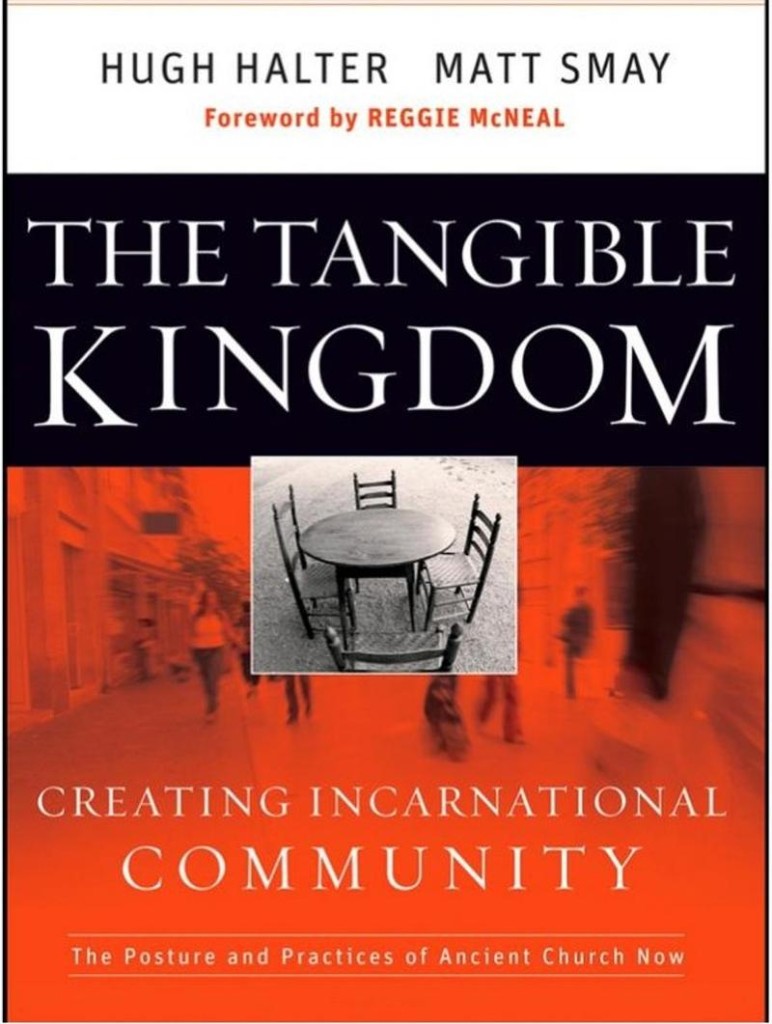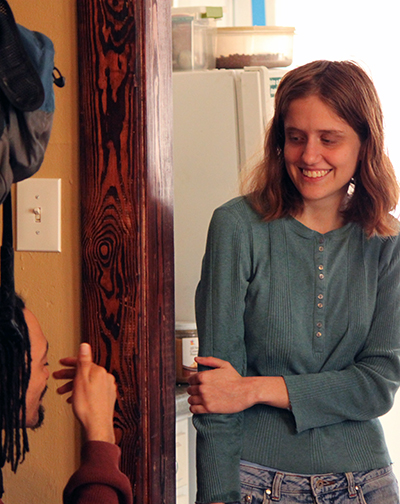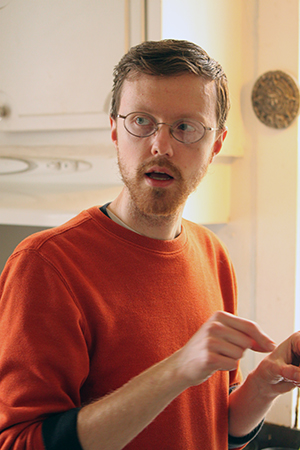 This week, the leadership team of Friends of Jesus DC began an eight-week process with the Tangible Kingdom Primer, a resource that helps small groups reorient around being sent to our local communities, modeling what it means to be a follower of Jesus, adopting a posture of humility and openness to folks who don’t share our core convictions. The Tangible Kingdom is basically about getting out of our churchy mindsets and to begin thinking more like disciples. In a world where religion is usually about rules and purity codes, we’re seeking to learn how to be more like Jesus and his early followers, who regularly upset the respectable church folk through acts of love, justice and mercy that didn’t fit into the standard lists of dos and don’ts.
This week, the leadership team of Friends of Jesus DC began an eight-week process with the Tangible Kingdom Primer, a resource that helps small groups reorient around being sent to our local communities, modeling what it means to be a follower of Jesus, adopting a posture of humility and openness to folks who don’t share our core convictions. The Tangible Kingdom is basically about getting out of our churchy mindsets and to begin thinking more like disciples. In a world where religion is usually about rules and purity codes, we’re seeking to learn how to be more like Jesus and his early followers, who regularly upset the respectable church folk through acts of love, justice and mercy that didn’t fit into the standard lists of dos and don’ts.
In this first week of the TK Primer, we are delving into what it means to be missional. Missional is a fairly new, rather trendy church word that comes from the Latin, missio – which means, to be sent. The idea is that, rather than sitting comfortably in church buildings and patting ourselves on the back for how good and saved we Christians are, followers of Jesus should be actively developing relationships with those who are not Christians. Rather than seeing Christianity as a fortress, the missional movement conceives of life with God as being a constant sending into new, unfamiliar, and often uncomfortable places. Being missional means getting out of our safe spaces and comfortable mindsets and allowing ourselves to be in genuine relationship with the world around us.
 Being missional demands that we embrace the fact that Christians get a lot of stuff wrong, and non-Christians have a lot to teach us. It means getting off our high horse and allowing our lives to be changed by the wisdom we find in others, especially those who haven’t made a decision to follow Jesus. It means respecting the culture and worldview of those around us, and that we really seek to know others rather than just cramming our Christian worldview down their throats. Being missional involves releasing all of the cultural shoulds that come with our faith and allowing the Spirit to lead us into a gospel that is contextualized to the culture and worldview of those to whom we are sent.
Being missional demands that we embrace the fact that Christians get a lot of stuff wrong, and non-Christians have a lot to teach us. It means getting off our high horse and allowing our lives to be changed by the wisdom we find in others, especially those who haven’t made a decision to follow Jesus. It means respecting the culture and worldview of those around us, and that we really seek to know others rather than just cramming our Christian worldview down their throats. Being missional involves releasing all of the cultural shoulds that come with our faith and allowing the Spirit to lead us into a gospel that is contextualized to the culture and worldview of those to whom we are sent.
It’s a tough concept for many of us to wrap our heads around: Jesus is the Way, but there are many ways to walk with him. Jesus is the Truth, yet there are many ways to understand him. Jesus is the Life, but his presence changes each of us uniquely, in ways that can’t be reduced to a cookie-cutter theology. Just because we’re trying to follow Jesus doesn’t make us more spiritually advanced than those who haven’t made that decision yet. We can’t judge how the Holy Spirit is at work in the lives of others. At most, we can invite others to walk with us and help us learn more fully what it means to be a friend of Jesus.
 Even this act of inviting, though, is tricky. It’s generally not the first step in developing a relationship with another person! We’re learning that we really need to take the time to grow in friendship and honor the unique experience of each person we meet. It doesn’t make much sense to talk to others about Jesus unless they’ve had the chance to see his love reflected in our lives.
Even this act of inviting, though, is tricky. It’s generally not the first step in developing a relationship with another person! We’re learning that we really need to take the time to grow in friendship and honor the unique experience of each person we meet. It doesn’t make much sense to talk to others about Jesus unless they’ve had the chance to see his love reflected in our lives.
The good news about the missional mindset is that none of us need to have all the answers to start practicing it. In fact, recognizing our own weakness and limitations is the first step towards relating to others as Jesus relates to us: With gentleness and humility.
This is challenging. We all like to think we understand the world and have most of the answers. It can be hard to admit how often we feel lost and struggle with doubt. We are seeking to give our lives over to Jesus, but we’re still very limited, fallible human beings. How can we walk with Jesus without needing to be right all the time? What does it look like to lead lives so filled by God’s love that people want to know what’s going on? What would it mean for us to trust the Holy Spirit to do the convincing, rather than putting that burden on ourselves?